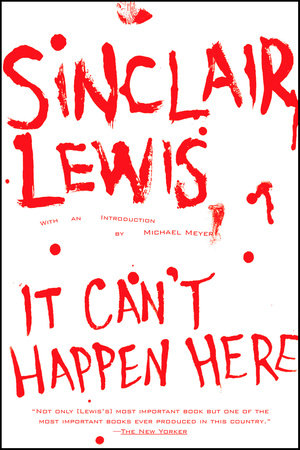Sinclair Lewis’s “It Can’t Happen Here” audiobook narrates a dystopian story about the rise of a fascist regime in America. The novel warns against the dangers of authoritarianism and the erosion of democratic values.
Sinclair Lewis’s “It Can’t Happen Here” is a seminal work that remains relevant today. Published in 1935, the novel explores the chilling possibility of a fascist takeover in the United States. The story follows Doremus Jessup, a small-town newspaper editor, as he witnesses the rise of a tyrannical leader, Berzelius “Buzz” Windrip.
The audiobook adaptation brings this cautionary tale to life, offering a gripping and thought-provoking experience. With its incisive social commentary, “It Can’t Happen Here” serves as a powerful reminder of the fragility of democracy and the importance of vigilance.
Sinclair Lewis’s Dystopian Vision
Sinclair Lewis’s novel, It Can’t Happen Here, presents a chilling dystopian vision. The audiobook version brings this vision to life with gripping narration. Lewis’s portrayal of a fascist regime in America serves as a stark warning. The story is a powerful reflection of his fears about totalitarianism.
The Rise Of Totalitarianism In Fiction
Lewis’s novel explores the rise of totalitarianism in a small American town. The narrative delves into how a charismatic leader can seize power. This leader’s promises of change and stability deceive the populace. The story highlights the dangers of unchecked authority and blind loyalty.
- Charismatic leaders can mislead the public.
- Promises of change may hide dark intentions.
- Unchecked power leads to oppression.
Parallels To 1930s American Society
Lewis wrote the novel during the 1930s, a turbulent period in America. The Great Depression caused widespread economic hardship. Political instability and social unrest were rampant. Lewis saw parallels between these conditions and the rise of fascism in Europe.
| 1930s America | Novel’s Setting |
|---|---|
| Economic hardship | Economic promises |
| Political instability | Authoritarian regime |
| Social unrest | Oppression of dissent |
Lewis’s work serves as a cautionary tale. The novel reflects his concerns about democracy’s fragility. The audiobook immerses listeners in this tense and thought-provoking narrative.

Credit: www.audiobooks.com
Narrative Techniques In The Audiobook
Sinclair Lewis’s “It Can’t Happen Here” audiobook is a captivating experience. The narrative techniques used make the story come to life. Below, we explore key elements that enhance the storytelling.
Character Voices And Their Impact
Character voices are crucial in this audiobook. Each character has a unique voice. The narrator changes pitch and tone to match personalities. This makes each character memorable.
For example, Doremus Jessup sounds thoughtful and cautious. Senator Windrip has a commanding and aggressive voice. These vocal differences add depth to the story. They help listeners distinguish between characters easily.
Use Of Soundscapes To Enhance The Story
Soundscapes play a significant role in this audiobook. Background sounds set the scene vividly. You hear the hustle of busy streets and the quiet of an office. These sounds create an immersive experience.
The use of sound enhances emotional moments. During tense scenes, the soundscape becomes intense. During peaceful moments, the background sounds calm down. This dynamic use of sound keeps listeners engaged.
Relevance And Legacy
The audiobook of Sinclair Lewis’s It Can’t Happen Here continues to captivate listeners. Its themes are still relevant today. This novel, written in 1935, warns of the dangers of authoritarianism. It serves as a powerful reminder of the importance of democracy. Let’s explore its modern interpretations and the enduring message of vigilance in democracy.
Modern Interpretations Of The Novel
Many readers find It Can’t Happen Here relevant in today’s political climate. The novel’s portrayal of a dictator rising to power in America is chilling. It mirrors modern fears about threats to democratic institutions. Listeners of the audiobook often draw parallels between the novel’s events and current affairs.
Critics and scholars continue to analyze its themes. They explore how the story reflects societal anxieties. The audiobook brings these discussions to a wider audience. It allows listeners to engage with the novel’s ideas in a new way.
The Enduring Message Of Vigilance In Democracy
It Can’t Happen Here emphasizes the need for vigilance in a democracy. The story warns against complacency. It shows how easily freedoms can be lost. The audiobook highlights this message, making it accessible to a modern audience.
Listeners are reminded to stay informed and active in civic duties. The novel encourages a proactive stance in protecting democratic values. Its message remains timeless and vital.
| Theme | Relevance |
|---|---|
| Authoritarianism | Reflects current fears about political power |
| Complacency | Warns against taking freedoms for granted |
| Vigilance | Encourages active participation in democracy |
- The audiobook format makes the novel accessible.
- Its themes are still relevant today.
- Listeners can draw parallels with current events.

Credit: www.penguinrandomhouse.com

Credit: www.audible.com
Conclusion
Sinclair Lewis’s “It Can’t Happen Here” audiobook captures a chilling dystopia. Its timeless relevance keeps listeners engaged. This masterpiece serves as a stark reminder of democracy’s fragility. Dive into the audiobook for a gripping experience that resonates today. Embrace its lessons and appreciate Lewis’s profound storytelling.



